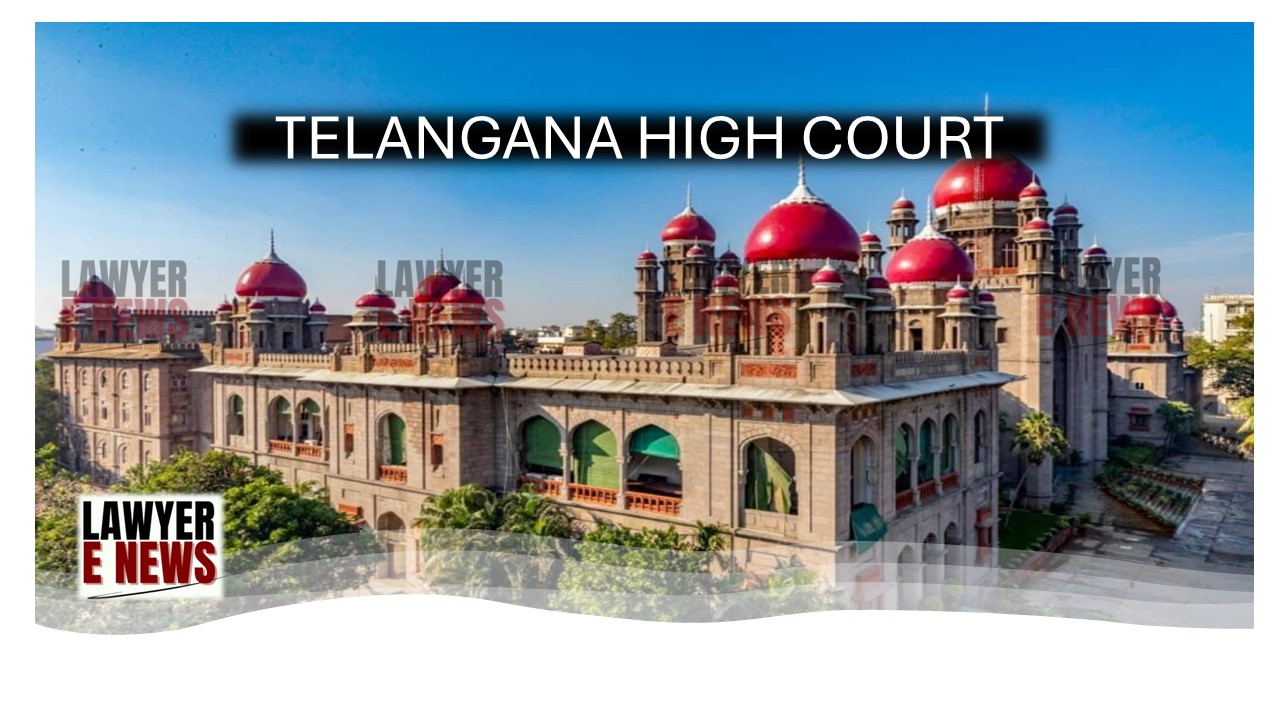-
by Admin
15 February 2026 5:35 AM



The Telangana High Court has set aside a contempt order against G. Chandraiah, former Commissioner of Machilipatnam Municipal Corporation, who faced six months of imprisonment and a fine of Rs. 2,000 for failing to implement a court order reinstating a suspended employee. The appellate bench, comprising Justices U. Durga Prasad Rao and Sumathi Jagadam, ruled that the contempt proceedings were unwarranted as the order had been implemented, albeit after procedural delays.
The respondent, S. Venkatesh, a former Revenue Officer with the Machilipatnam Municipal Corporation, was suspended following a false implication in a criminal case by the Anti-Corruption Bureau (ACB) on February 27, 2022. Subsequently, on October 17, 2022, the Commissioner & Director of Municipal Administration (C&DMA) ordered Venkatesh’s reinstatement. However, the Machilipatnam Municipal Corporation failed to act on this directive, prompting Venkatesh to file Writ Petition No. 13125 of 2023.
The Court’s primary concern was the non-implementation of the C&DMA’s directive. Despite the court’s order dated May 12, 2023, which mandated Venkatesh to approach the Commissioner for reinstatement, the Municipal Corporation delayed compliance.
The appeal highlighted procedural delays and lapses. On July 21, 2023, the appellant had issued an internal order permitting Venkatesh to rejoin service. However, due to internal miscommunication and the appellant’s subsequent transfer to Eluru, the official proceedings were delayed. This procedural oversight was not communicated in the initial counter affidavit, leading to the contempt order.
Justice Sumathi Jagadam, delivering the judgment, emphasized that while procedural diligence is crucial, the punishment of contempt should be reserved for willful disobedience. “The implementation of the order, though delayed, was eventually completed. The omission in the affidavit does not amount to willful non-compliance,” the Court noted.
Justice Sumathi Jagadam observed, “Had the Standing Counsel for the appellant been vigilant with his submission, the Court would not have reached such a conclusion. The procedural lapses, although regrettable, do not constitute contempt of court.”
Conclusion: The Telangana High Court’s decision to overturn the contempt order underscores the importance of procedural accuracy and timely communication within administrative bodies. By setting aside the punishment, the Court reaffirmed the need for a balanced approach in contempt proceedings, particularly where procedural delays rather than intentional disobedience are involved. This ruling is expected to influence future cases involving administrative compliance and procedural diligence.
Date of Decision: July 24, 2024
G. Chandraiah vs. S. Venkatesh
